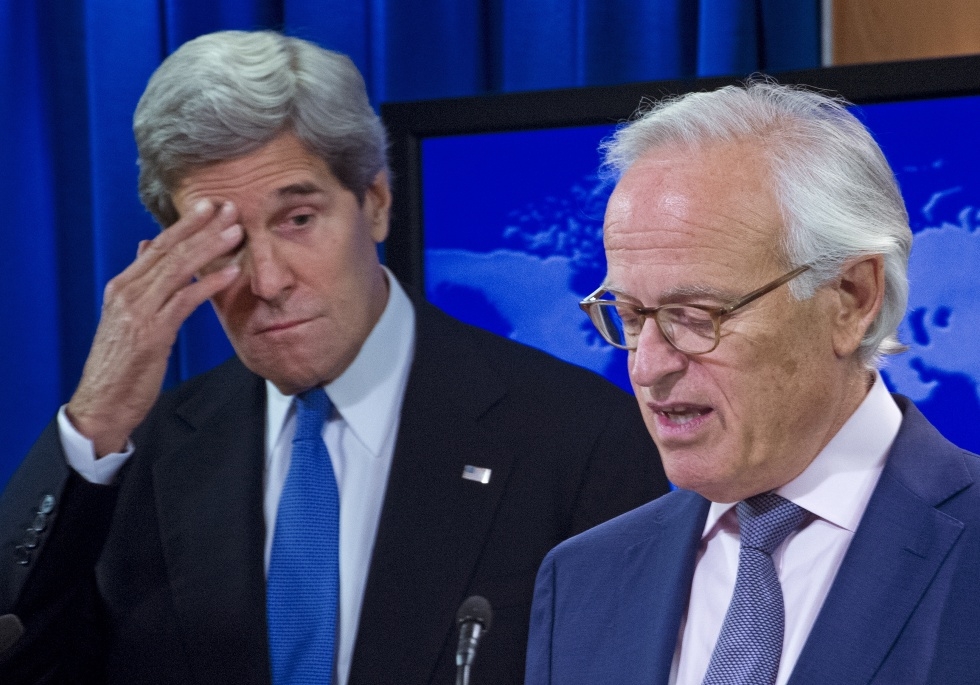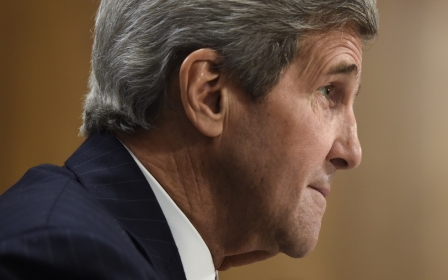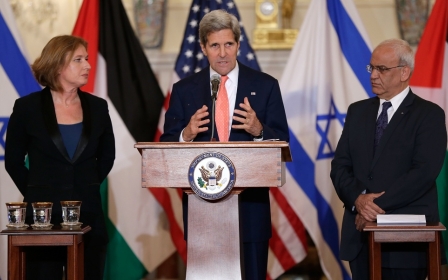Palestinian Authority threatens to disband itself

Palestinian negotiators have warned they may pass responsibility for their territory back to occupying power Israel if peace talks remain stalled, a senior Palestinian official said on Sunday.
The official said the Palestinians told US peace envoy Martin Indyk on Friday that unless Israel releases Palestinian prisoners as agreed and freezes settlement building, they could dismantle the Western-backed Palestinian Authority (PA) of president Mahmud Abbas.
"The Palestinians informed Indyk that if this Israeli intransigence continues, they have several options to resort to," the Palestinian official told AFP on condition of anonymity.
"First, handing the keys of the PA to the UN so it will become in charge of the Palestinian people and the state of Palestine, which is under occupation, or that the (Israeli) occupation assumes again full responsibility for everything."
Member of the Palestinian Liberation Organization (PLO) executive committee, Wassel Abu Yousef, said that dissolving the PA would signal that the Palestinians feel maintaining the government is useless if peace talks end without reaching an agreement.
New MEE newsletter: Jerusalem Dispatch
Sign up to get the latest insights and analysis on Israel-Palestine, alongside Turkey Unpacked and other MEE newsletters
"Right now, the PA is clearly restricted by Israeli measures and policies. Therefore, dissolving the PA, quitting the transitional agreements and turning Palestine into a state under Israeli occupation may create a new reality," Abu Yousef said to Xinhua Mews Agency.
Under the 1993 Oslo accords which were to have led to an independent Palestinian state, the Palestinians received some autonomy in managing their day-to-day affairs.
The PA is in a constant budgetary crisis and only manages to pay its civil servants and provide essential services thanks to generous funding from foreign donors.
But Israel still retains overall control of the occupied West Bank and annexed east Jerusalem while the militant Islamist Hamas threw off PA rule in the Gaza Strip in 2007 and has since run its own administration.
Abbas's Palestine Liberation Organisation (PLO) and Hamas have periodically held talks on reconciliation but they have come to nothing.
A PLO delegation is expected to visit Gaza for more talks within a few days.
US Secretary of State John Kerry nudged Israel and the Palestinians to reopen peace talks in July for a nine-month period.
The United States is striving to broker an agreement to extend those talks beyond their April 29 deadline, but so far without success.
At Friday's meeting with the Palestinian negotiators, Indyk "had no new ideas to save the negotiations," the Palestinian official said on Sunday.
Israeli commentator Nahum Barnea, writing in top-selling Yediot Aharonot daily on Sunday, said the Palestinian gambit was a desperate one.
"The Palestinians are playing their last card," he wrote. "Cancelling... all their achievements and all the obligations they made under the Oslo accords.
"If the Palestinians carry out their threat it will have dramatic results. The PA will be dismantled, all its security apparatus will be dispersed."
That would oblige Israel to fill the vacuum at tremendous financial cost, Barnea added.
"The (military) will have to find a way to take the PA's place: to set up a police force, to take care of education, health services, water, sewage."
The PLO leadership is to convene next weekend in the West Bank city of Ramallah for a key debate on the peace process and possible options in the event that Kerry's initiative crashes.
Israeli economy minister Naftali Bennett, head of the far-right Jewish Home party, was dismissive of the latest Palestinian warning.
"If he wants to go we won't stop him," he said in a statement. "You don't negotiate with Israel with a pistol against its head."
Head of the Democratic Studies Center in Ramallah, George Jaqman, said to Xinhua News Agency that it is unlikely the PNA will dissolve "because Israel and many countries in the region will have their interests damaged if the security cooperation ends."
Middle East Eye delivers independent and unrivalled coverage and analysis of the Middle East, North Africa and beyond. To learn more about republishing this content and the associated fees, please fill out this form. More about MEE can be found here.



